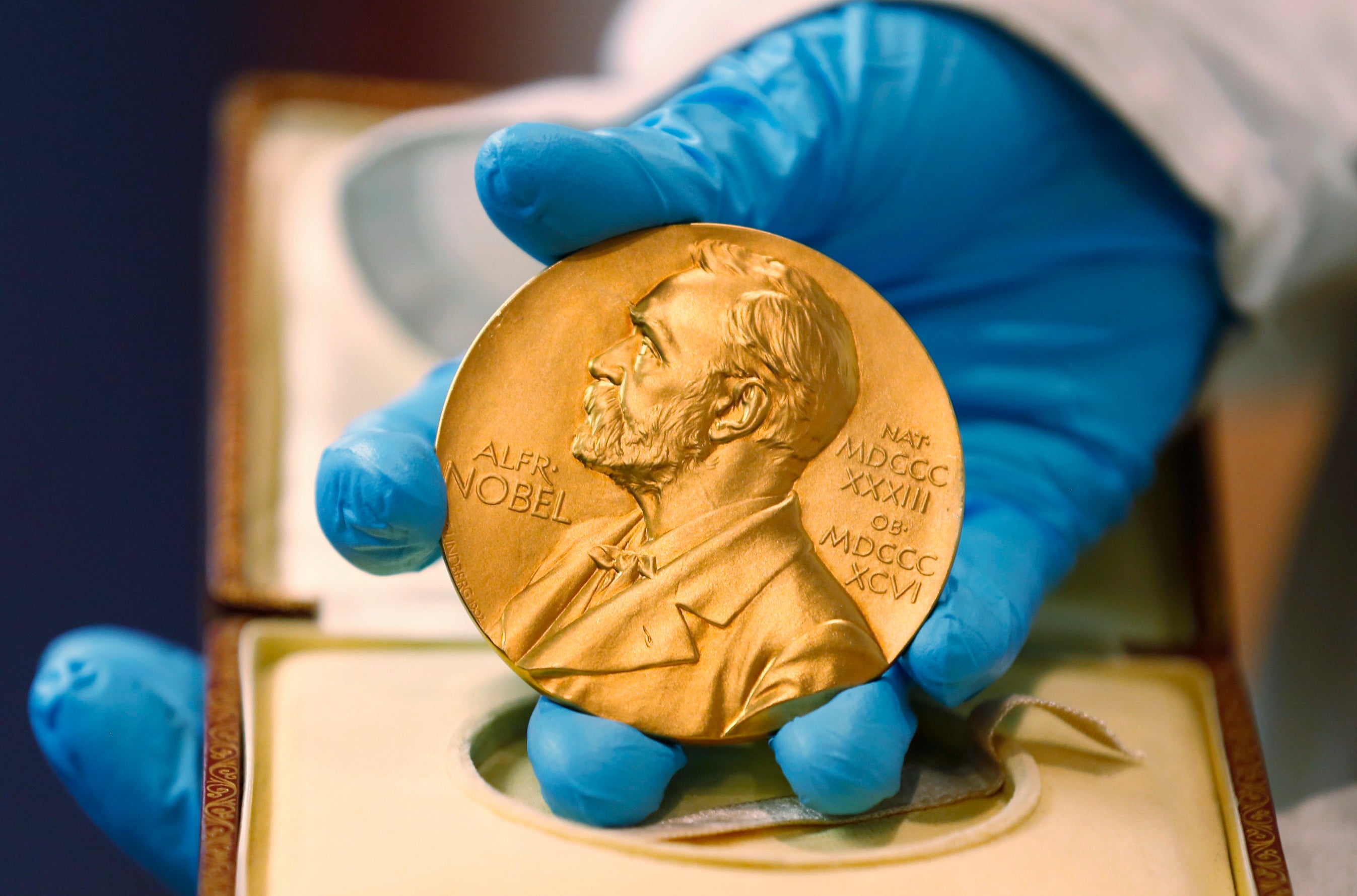Panel to announce 2020 Nobel Prize for chemistry
The 2020 Nobel Prize for chemistry is being announced Wednesday

Your support helps us to tell the story
From reproductive rights to climate change to Big Tech, The Independent is on the ground when the story is developing. Whether it's investigating the financials of Elon Musk's pro-Trump PAC or producing our latest documentary, 'The A Word', which shines a light on the American women fighting for reproductive rights, we know how important it is to parse out the facts from the messaging.
At such a critical moment in US history, we need reporters on the ground. Your donation allows us to keep sending journalists to speak to both sides of the story.
The Independent is trusted by Americans across the entire political spectrum. And unlike many other quality news outlets, we choose not to lock Americans out of our reporting and analysis with paywalls. We believe quality journalism should be available to everyone, paid for by those who can afford it.
Your support makes all the difference.The 2020 Nobel Prize for chemistry is being announced Wednesday, an award that has frequently honored work which led to practical applications in wide use today — such as last year's win for the brains behind the lithium-ion battery.
A panel at the Swedish Academy of Sciences in Stockholm will announce the recipient some time after 11:45 a.m. (0945 GMT; 5:45 a.m. EDT).
The prestigious award comes with a gold medal and prize money of 10 million krona (more than $1.1 million), courtesy of a bequest left more than a century ago by the prize's creator, Swedish inventor Alfred Nobel. The amount was increased recently to adjust for inflation.
On Monday, the Nobel Committee awarded the prize for physiology and medicine to Americans Harvey J. Alter and Charles M. Rice and British-born scientist Michael Houghton for discovering the liver-ravaging hepatitis C virus. Tuesday's prize for physics went to Roger Penrose of Britain, Reinhard Genzel of Germany and Andrea Ghez of the United States for their breakthroughs in understanding the mysteries of cosmic black holes.
The other prizes are for outstanding work in the fields of literature, peace and economics.
___
Read more stories about Nobel Prizes past and present by The Associated Press at https://www.apnews.com/NobelPrizes